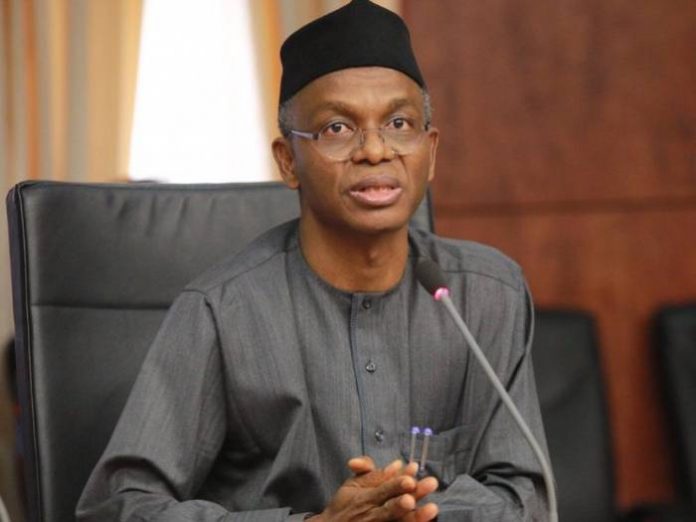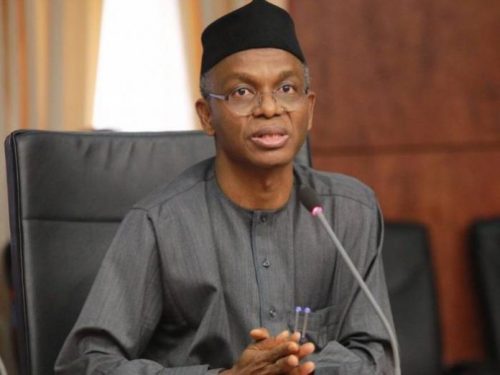
The Kaduna State Government said on Tuesday it has concluded arrangements to recruit 3,059 health workers to meet minimum service delivery gaps in its 255 Primary Health Centers.
The Commissioner for Health and Human Services, Dr Paul Dogo, made the disclosure in Kaduna while addressing newsmen on activities of the ministry between January and September.
He said that the staff, when fully engaged, would support the effort of the state government to strengthen the state Primary Health Care Development Agency.
Dogo also disclosed that the State Executive Council had approved the Agency’s corporate plan aimed at restructuring the health sector for efficient service delivery.
According to him, the major health policy thrust of the government is the revitalization of the 255 primary health centers to meet minimum standards.
“We have made tremendous progress in the implementation of primary health care under one roof and the designation of one model primary health care center per political ward.
“We have employed 23 medical personnel who have been deployed to all the LGAs, to equally ensure efficient service delivery to the people,” the commissioner added.
According to him, the government has also improved quality of immunisation services from 41 per cent in the fourth quarter of 2017, 41 per cent in the second quarter of 2018 to 61 per cent in the third quarter of 2018.
He said that the state government had installed 144 solar refrigerators to maintain potency of vaccines at 100 per cent.
“Local supplemental immunisation had also been conducted in 12 local government councils in the state to improve children’s health.
“The local governments included Sanga, Kagarko, Lere, Kubau, Ikara and makarfi. Others are Soba, Kudan, Kauru, Giwa, Igabi, and Birnin Gwari,” he said.
The commissioner said that the state had remained free from wild polio virus infection since November 2012.
According to him, during the the first phase of maternal New Born Child Health Week in Jul, 953 health facilities were used across the 23 local government areas in the state.
”No fewer than 547,087 mother-baby pairs were reached with life saving interventions across the state.
”And 29,036 doses of Penta 3 vaccines, 29,518 doses of Measles vaccines and 1,238,118 doses of vitamin A, were administered on children.
“Also no fewer than 51,812 children were dewormed, while 317,079 women received iron and folate supplements during the period,” Dogo said .
He said 9,355 children also received interventions for severe malnutrition.
”Community infant young child food programme was given a boost; from January to June, with number of community based nutrition support groups increased to 421.
”No fewer than 6,097 pregnant women; 6,502 mothers with children less than six months of age and 6,942 mothers with children more than six months of age, 5,616 women of child bearing age, benefited.
”Also, 3,903 grand mothers; 2,902;168 health workers were trained on community infant and young children feeding,” the commissioner said.
He added that Community Management of Acute Malnutrition (CMAM) programme had commenced in eight additional local government areas, while pre-assessment for the scale up of acute malnutrition management was carried out in 18 LGAs.
Meanwhile, the official disclosed that integrated outreach activities were conducted in 20 hard to reach communities in Chikun, Giwa, Sanga, Soba LGAs where 4413 people received immunisation and other interventions such as child birth spacing services.
According to him, the Agency had continued with the State Public Health Supply Chain Transformation Project lunched in January 2017.
”The project aims at saving lives and promoting the well being of people through an effective, efficient, end to end visible and well-coordinated gold standard health supply chain management system.
“The State government had adopted M-Health strategy in maternal health with the aim of getting more women recruited for antenatal clinic and to deliver in health facility through behavioral change communication using mobile phones.
He said the effort was in collaboration with with UNICEF.
“In addition to the above potential benefit, more women would be recruited for prevention of mother to child transmission intervention.”
He said the M-Health intervention would cover 12 local government areas with Six LGA to be supported by UNICEF, while the other Six by the ministry using SOML funding).
According to him, the state has also introduced Eye care programme for children which is aimed at fishing out all children with eye problems in Kaduna state.
”This is done through screening of children aged six to 10 years by teachers and front line health workers at Primary Health Center level.
The commissioner said that in line with that, 1006 Community Health Extention Workers (CHEWS) and 1,948 teachers were trained.
He added that among the children screened, 135 had highly specialized surgery at the National Eye Center and the programme is supported by sight savers.
Dogo added that the ministry reviewed its mandate on regulation of private health establishment and health training institutions in the state.
”The ministry of health has as one of its mandate the regulation of private health establishments in the state.
“To effectively carry out this regulatory function and improve on the quality of care in private clinics, hospitals and diagnostic centers, the law that gave the ministry such powers have been reviewed.
”The draft bill is before the law review committee for consideration before it is sent to the house of assembly.”
According to him, it provides for an agency that will take on the task in view of the large number of private health establishment in the state.
“The state needs to protect its residents from receiving harmful care from unqualified clinics,” he said.
He said, a ministerial committee had been setup by the State Executive Council to look into possibilities to regulate private health training institutions in the state.



Comment here